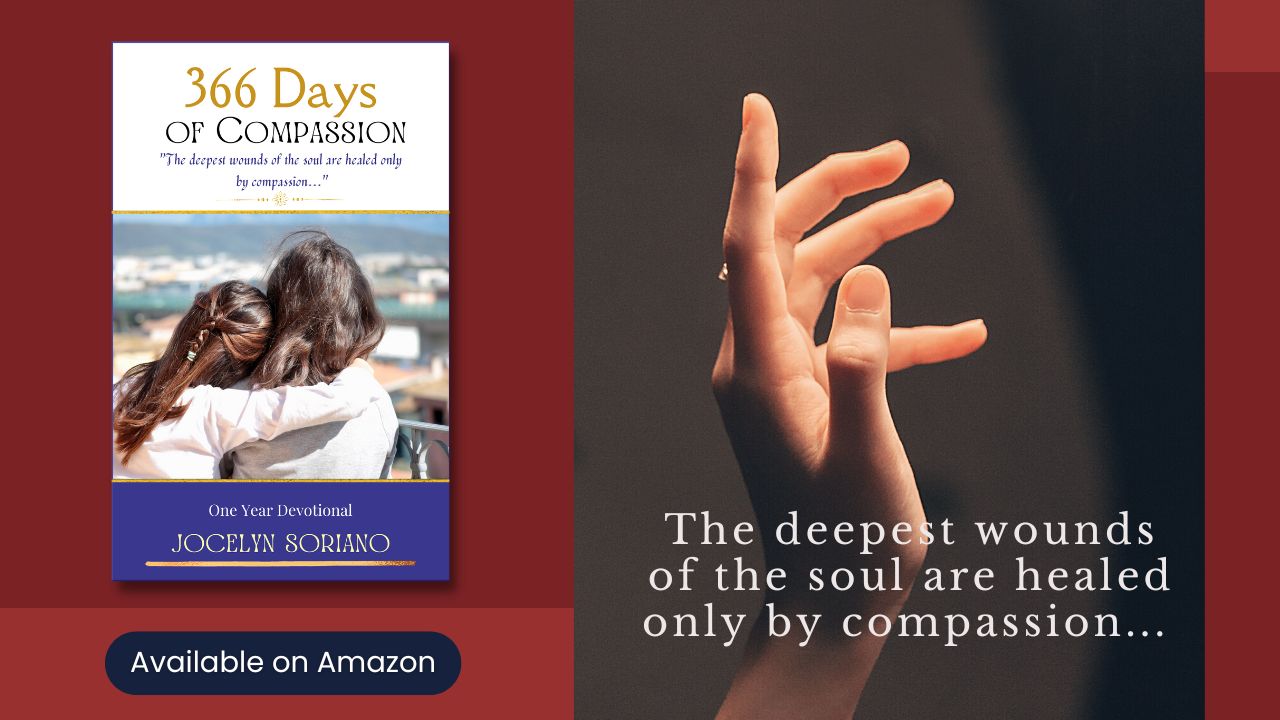
“Have I sinned the unforgivable sin? What if I committed a mortal sin and I did not know it? Why do I feel as though I need to confess my sins again?” If you have ever asked those questions, you may be suffering from scrupulosity.
What is Scrupulosity?
Scrupulosity can be defined as is seeing sin where there is no sin. It is not knowing where to draw the line between what is pleasing and offending to God.
Scrupulous people always have doubts about their spiritual walk and are never secure about their standing with God.
I myself have scrupulous tendencies. I can’t remember the number of times I searched about the difference between venial and mortal sins. Even after being truly for my sins, I wonder whether God has forgiven me or is angry at me for not being more repentant about them.
I must admit that there are times when I’m tempted to despair.
What is Despair?
Despair is losing hope in the mercy of God. It is being so focused on your guilt and your sins that you lose sight of God’s mercy.
It is when you start to abandon all hope of ever making it to heaven.
If you are a scrupulous person who wants to overcome thoughts of despair, I hope this article can somehow help you find hope in God.
Here are some of the things you must remember to conquer scrupulosity and thoughts of despair:
1. God sends no one to hell.
“…I received a deeper understanding of divine mercy. Only that soul who wants it will be damned, for God condemns no one.” – St. Faustina
It was St. Faustina herself who wrote in her diary that only those souls who want to be damned will go to hell.
God has already died for our sins. He offers us His forgiveness. But He cannot force anyone to receive His mercy.
Those who go to hell have chosen to turn away from God for all eternity. They refuse to be forgiven. They would rather stay away from His presence than gaze at His merciful heart.
2. God does not want us to despair.
“Whenever you feel guilty, even if it is because you have consciously committed a sin, a serious sin, something you have kept doing many, many times, never let the devil deceive you by allowing him to discourage you.” – St. Maximilian Kolbe
Did you know that the name of Satan came from the Hebrew word that means “accuser”? And that’s what he does.
He accuses you and makes you feel guilty. He wants to discourage you that you lose sight of God’s kindness, love and mercy.
When you fall into despair, it is then that you can fall into more deadly sins. Never let the accuser gain victory by falling into despair.
“Father, how can you then distinguish what comes from the heart and is inspired by Our Lord, and that which instead is inspired by the devil?” “You will distinguish it,” replied Padre Pio, “always by this: The spirit of God is a spirit of peace, and also in the case of grave sin, it makes us feel tranquil sorrow, humble, confident, and this is due precisely to His mercy. The spirit of the demon, on the contrary, excites, exasperates, and makes us in our sorrow feel something like anger against ourselves, whereas our first charity must be to ourselves, and so if certain thoughts agitate you, this agitation never comes from God, who gives tranquility, being the Spirit of Peace. Such agitation comes from the devil.” – Padre Pio
3. God can forgive even your mortal sins.
When you have a tendency to scrupulosity, trying to judge whether a sin is venial or mortal can be an endless quest. In the end, you may never have the certainty that you did not commit a mortal sin.
What you need to keep in mind is that God can forgive ALL of your sins. And that includes both venial and mortal sins.
Remember King David? He was God’s beloved one. But he took the wife of an innocent man whom he also sent to be killed in battle.
For someone who was so close to God, David could have thought he could never be forgiven. But God did. God accepted His sincere sorrow and repentance.
His mercy is not limited to the little sins that you do. When He died upon the cross, He took on every sin that humanity could possibly commit. He paid the price for our sins, our small sins and our gravest transgressions.
“It is not because I have been preserved from mortal sin that I lift up my heart to God in trust and love. I feel that even had I on my conscience every crime one could commit, I should lose nothing of my confidence: my heart broken with sorrow, I would throw myself into the Arms of my Saviour… I know that all that multitude of sins would disappear in an instant, even as a drop of water cast into a flaming furnace.” – St. Therese of Lisieux
4. Remember God’s mercy.
“Tell them that no soul that has called upon My mercy has been disappointed or brought to shame.” – Jesus to St. Faustina
God’s mercy is infinite and unfathomable. Your greatest sins could never match the boundless mercy of God.
If God is not merciful, how could He come down from heaven only to die a painful death for our salvation? Did Jesus not pray even for the forgiveness of those who crucified Him?
You have to trust in Him. Trust in the Divine Mercy and He will never let you down.
“If I saw the gates of Hell open and I stood on the brink of the abyss, I should not despair, I should not lose hope of mercy, because I should trust in Thee, my God.” – St. Gemma Galgani
Overcoming Scrupulosity and Despair
Our eternal salvation does not depend upon our efforts alone. God knows that without His grace, even our very best attempts at perfection could never obtain paradise for us.
We go to heaven because Jesus Christ has paid for our sins. He understands our weaknesses. He sees our misery.
We can never be saved by our fears or by our scrupulosity. Only God’s love and mercy can do that.
We do our very best on earth, but we leave the rest to God. We put our trust in Him to complete the work He has began in us.
“The tyranny of the image of the perfect Christian leads to its own type of depression, a depression that swirls around the fear that God doesn’t love those who don’t live up to “my” – not God’s – expectations. By confusing God’s expectations with our own, we are led to a sense of failure and defeatism. We expect perfection of ourselves (“God, I thank you that I am not greedy, dishonest and unfaithful in marriage, like other people,”cf. Lk 18:11). God, instead, extends the gift of reconciliation.” – Kathryn J. Hermes, Surviving Depression
Jocelyn Soriano is the author of Mend My Broken Heart, Questions to God and 366 Days of Compassion. She also writes about relationships and the Catholic faith at Single Catholic Writer.



















